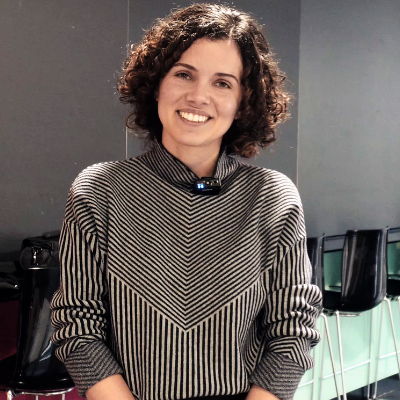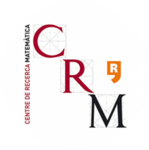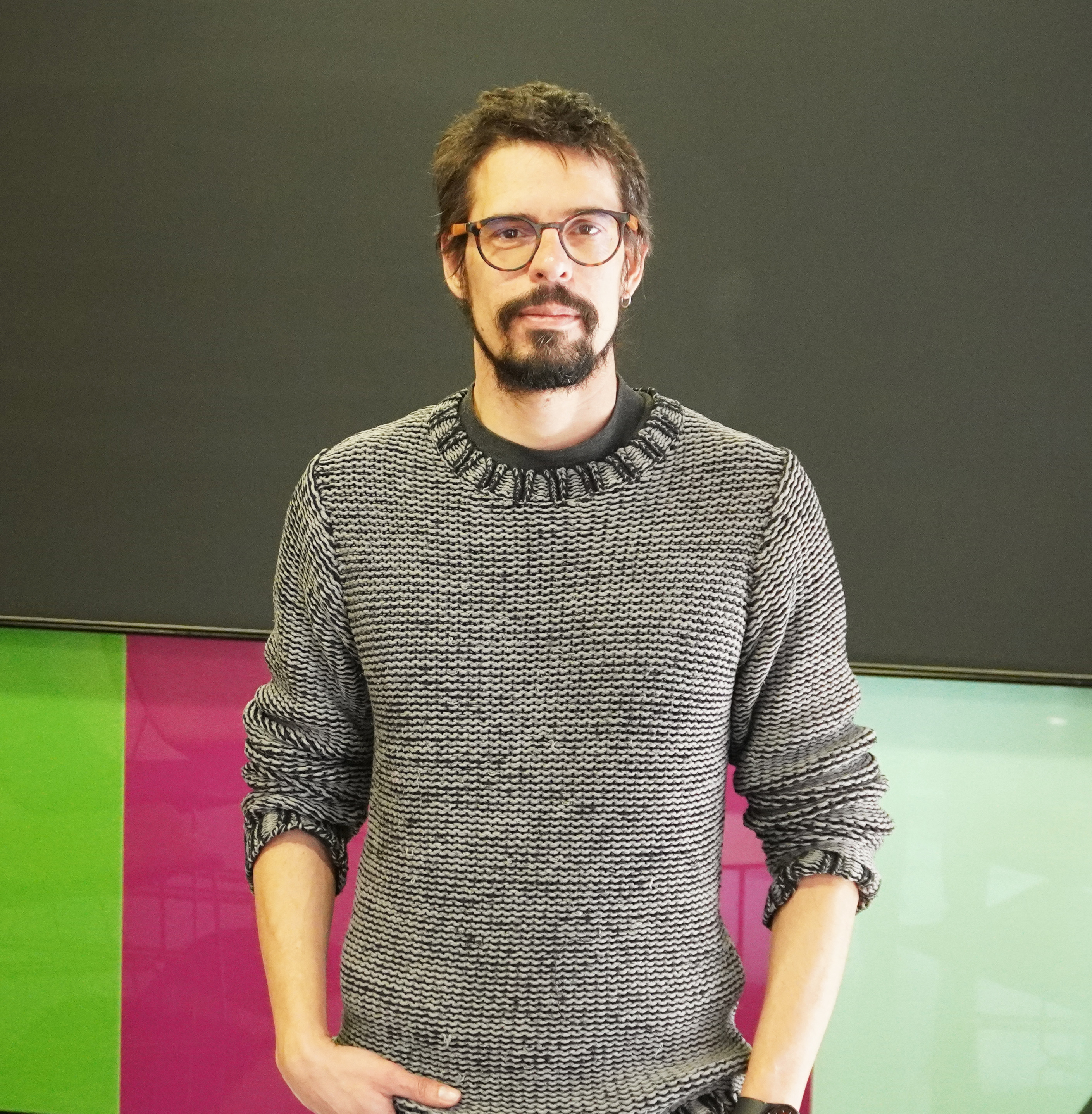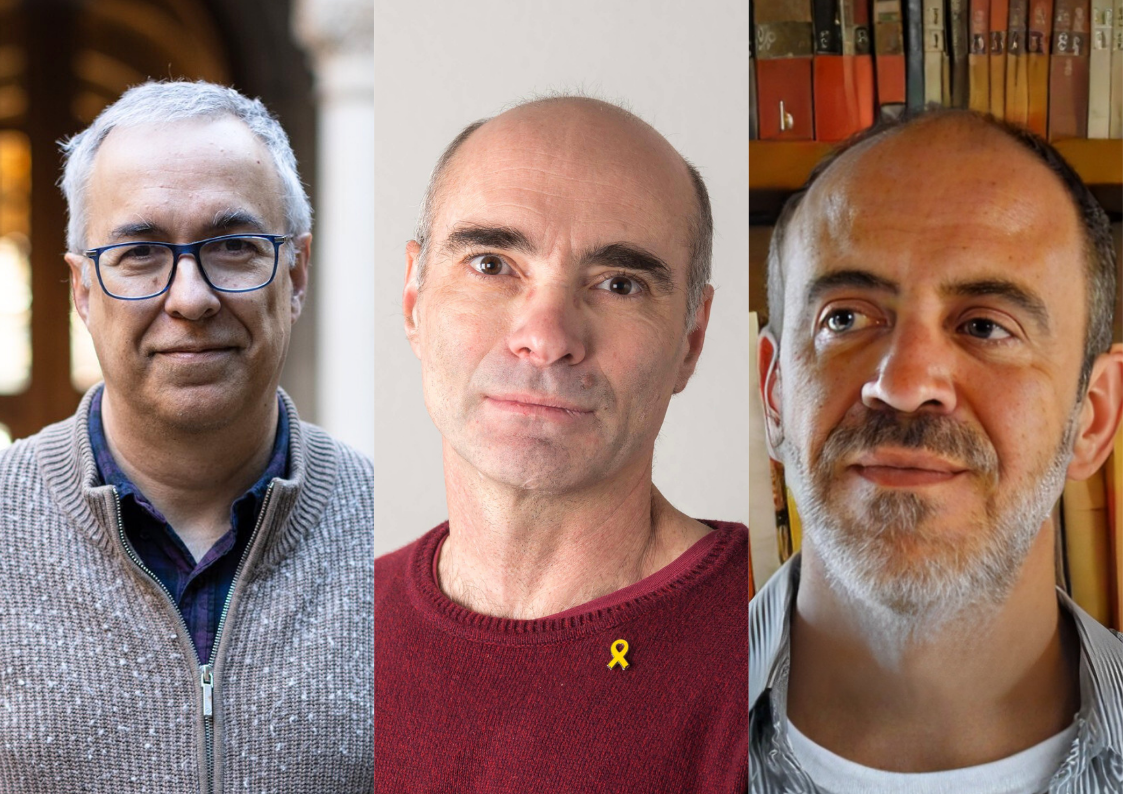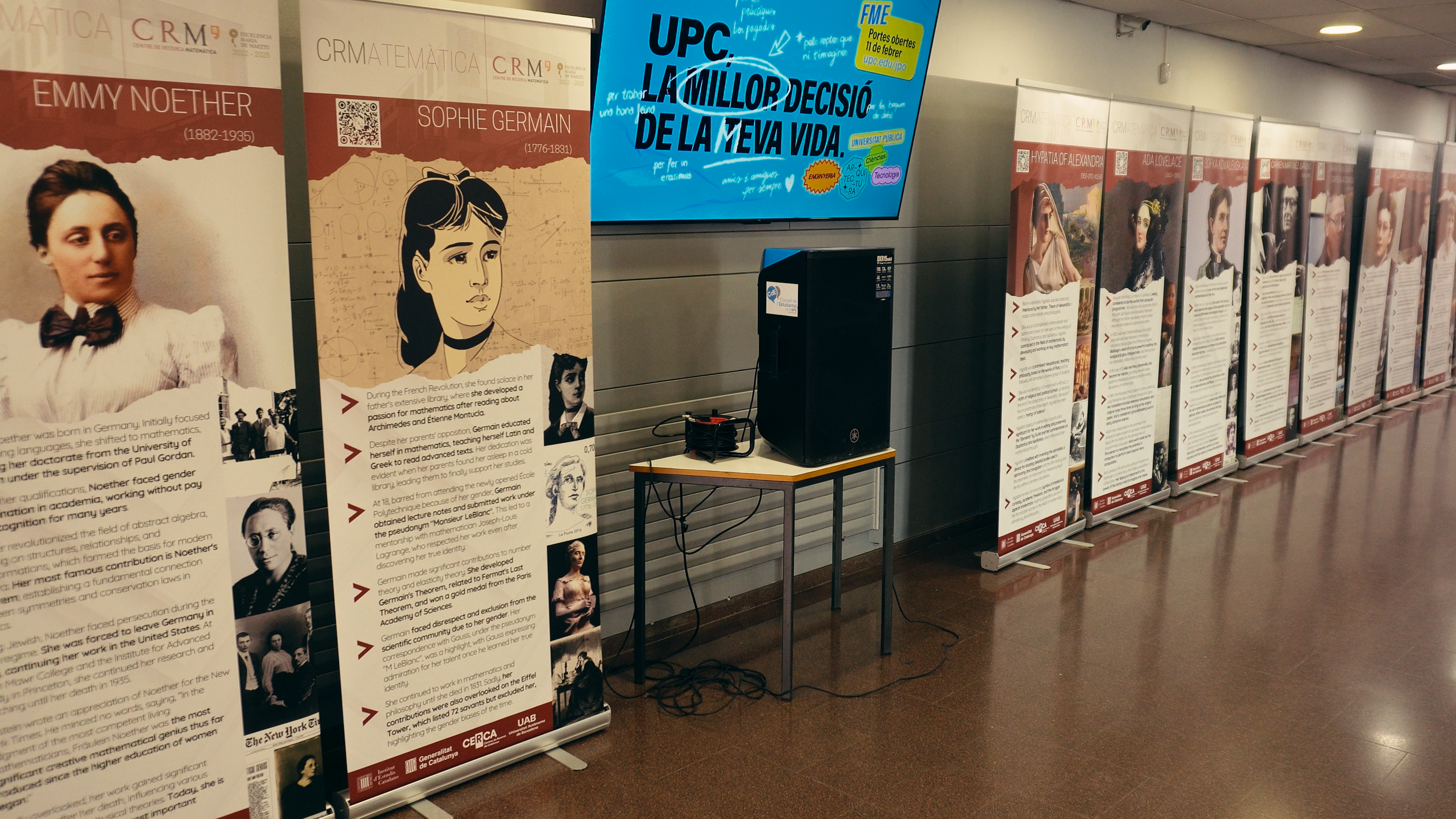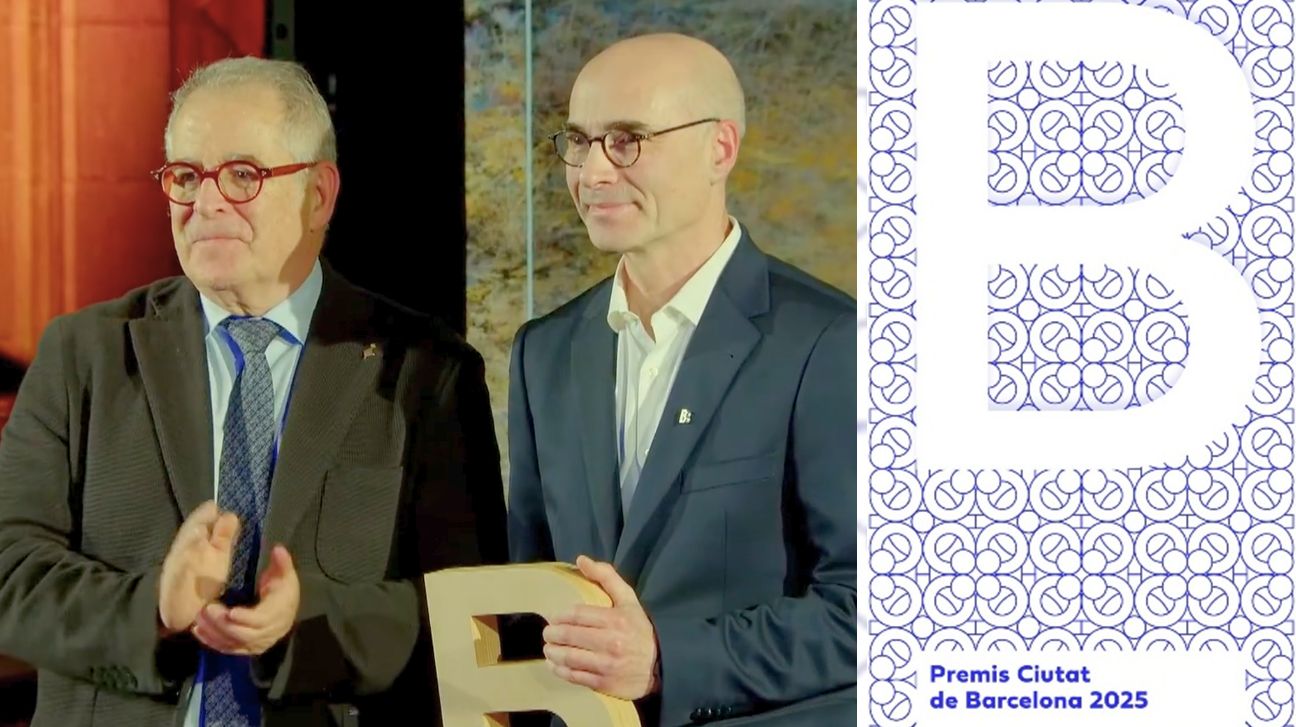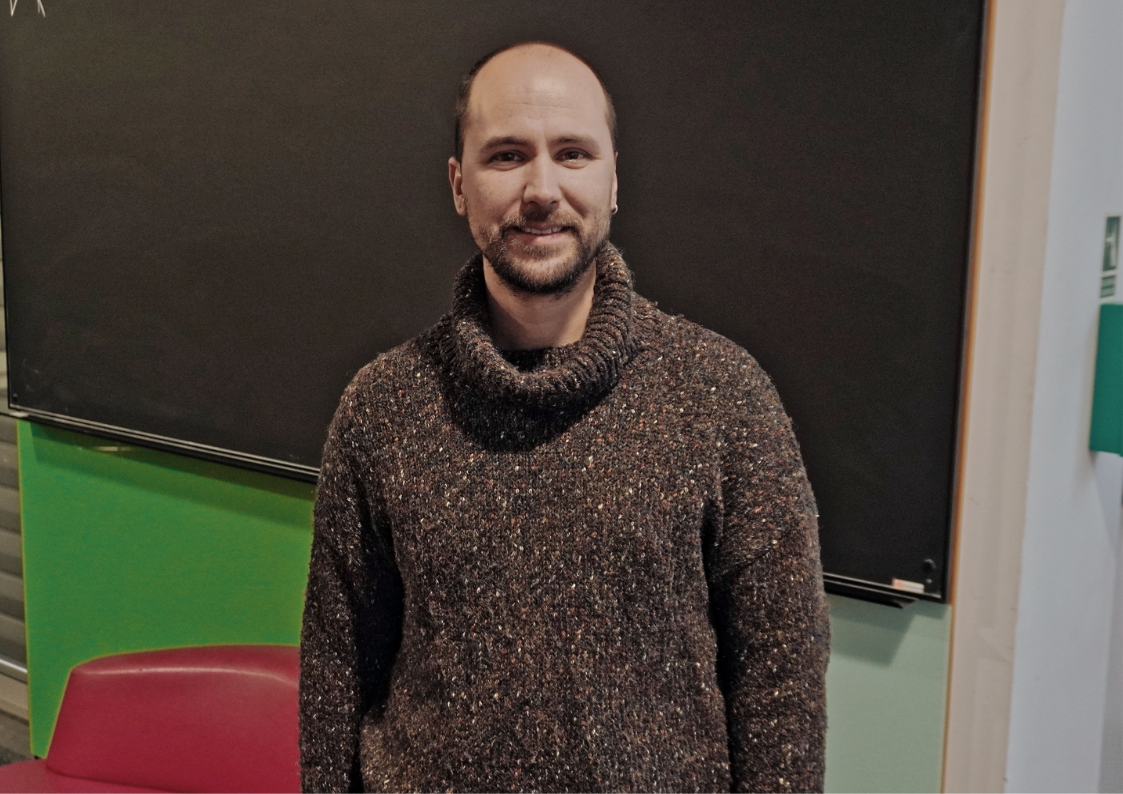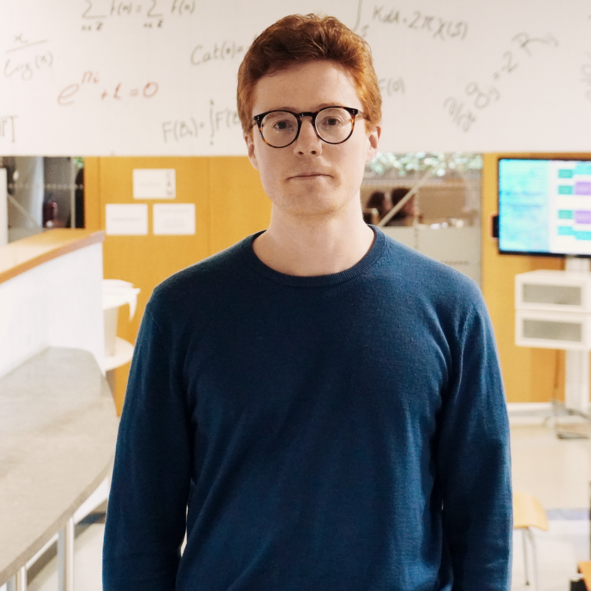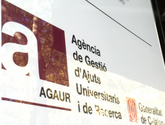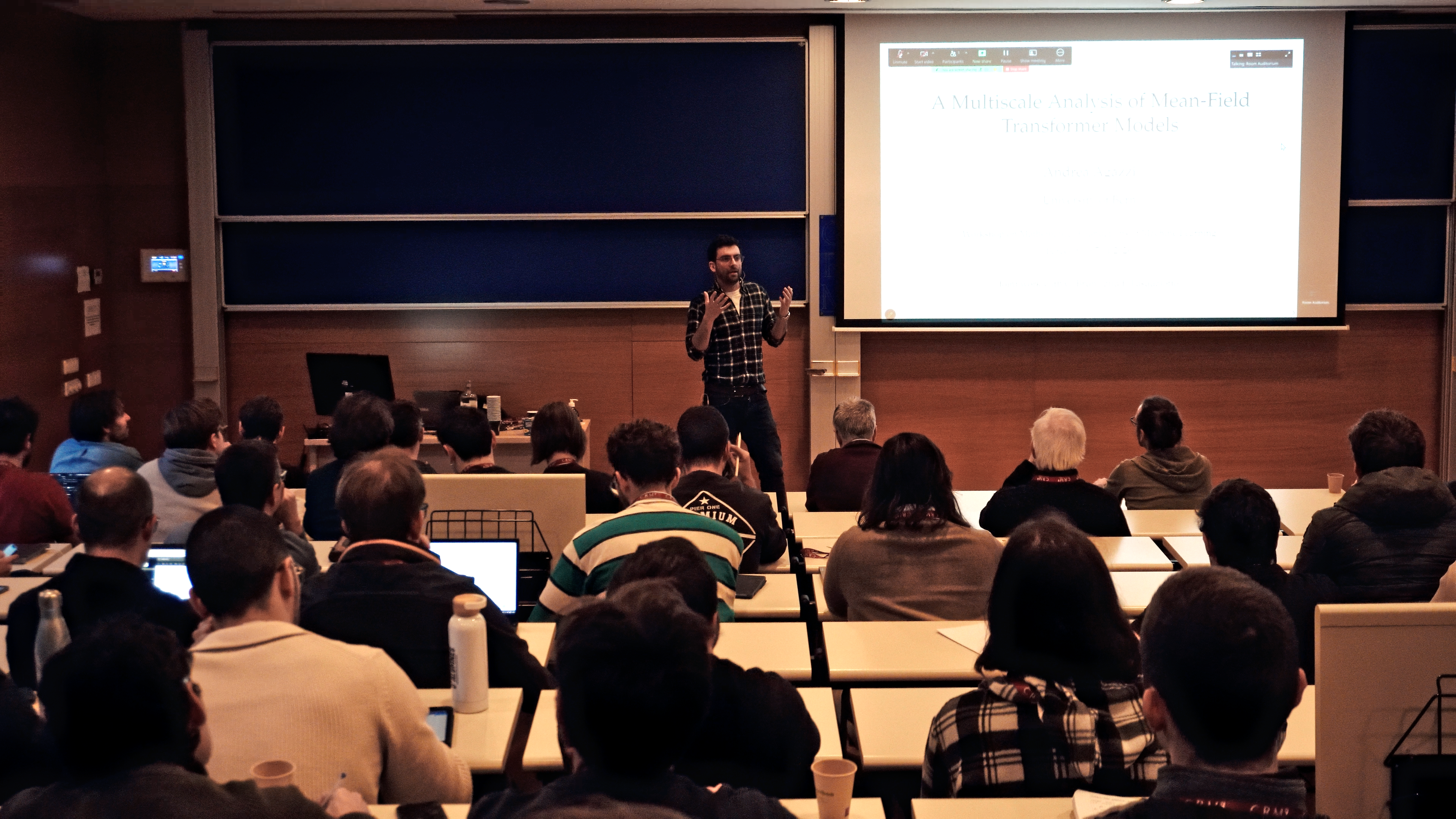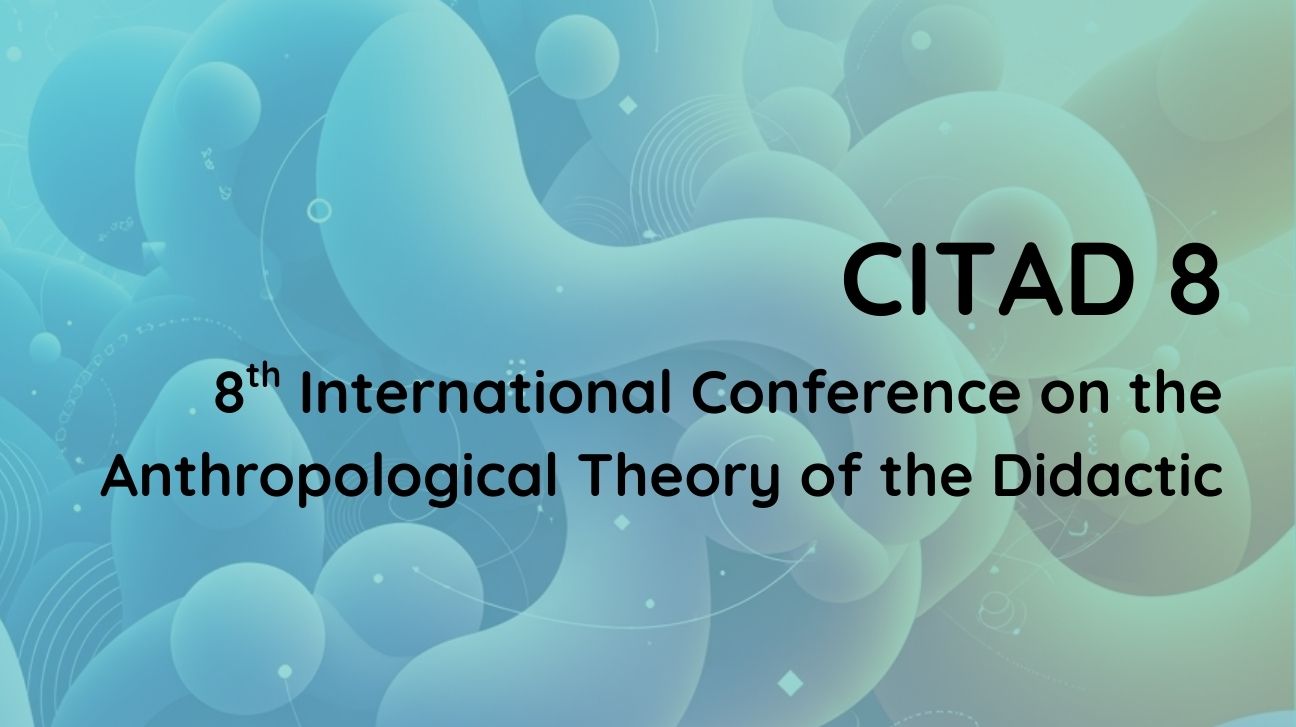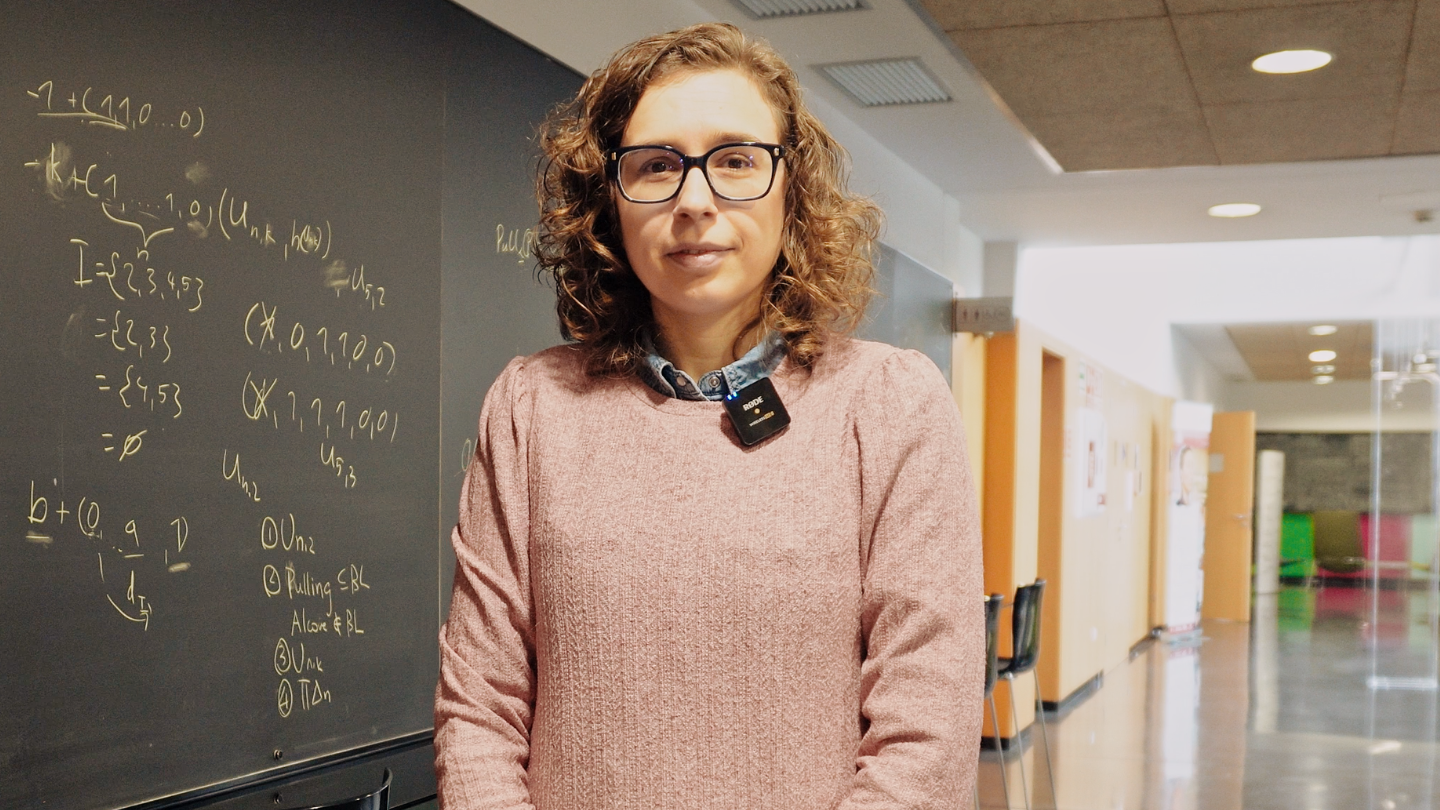
La investigadora Gissell Estrada, professora a la Universitat Politècnica de Catalunya i adscrita al Centre de Recerca Matemàtica, ha estat seleccionada com una de les 60 beneficiàries de la Beca Leonardo 2025 de la Fundación BBVA. El projecte becat, titulat Collective migration across scales: From PDEs to physical swarms, explora com les interaccions a escala microscòpica entre individus donen lloc a patrons col·lectius a escala macroscòpica, com el moviment de bandades d’ocells, eixams de drons o colònies cel·lulars.
Segons Estrada, es tracta d’ “un marc interdisciplinari que utilitza eixams robòtics programables per validar models basats en equacions en derivades parcials (PDEs) del moviment col·lectiu cel·lular i per posar a prova hipòtesis de desplaçament en condicions de soroll natural i comportaments inesperats”.
Amb una trajectòria internacional que inclou estades a centres com el BCAM, el Mathematical Institute d’Oxford o la Sorbonne Université, la seva recerca se situa a l’encreuament entre les equacions en derivades parcials, els sistemes de partícules interactuants i les aplicacions en biologia i robòtica.
“El modelatge matemàtic funciona com un laboratori d’idees.”
Rebre aquest suport suposa un punt d’inflexió. “Com a investigadora en una etapa inicial treballant en PDEs aplicades, aquesta beca em proporciona una oportunitat única per consolidar la meva línia de recerca independent. A més, permetrà finançar components experimentals, com plataformes robòtiques o la recollida de dades, que normalment no estan coberts per les ajudes estàndard en matemàtiques”, assenyala. El projecte s’emmarca dins del seu objectiu a llarg termini: crear un grup de recerca centrat en l’estudi i aplicació de les PDEs a fenòmens reals.
Més enllà del cas concret d’aquest projecte, Estrada reivindica el paper fonamental de les matemàtiques en les ciències aplicades. “Les matemàtiques són una eina molt potent, no només en biologia o física, sinó també en les ciències socials. Permeten afinar models, validar hipòtesis i reduir la necessitat d’experiments costosos o lents. El modelatge matemàtic funciona com un laboratori d’idees”, conclou.
Amb el suport de la beca Leonardo, la seva recerca rep un nou impuls per continuar obrint camins entre la teoria matemàtica i els sistemes complexos que habiten el nostre món, des del microcosmos cel·lular fins a la robòtica del futur.
|
|
CRM CommPau Varela
|
Trivial matemàtiques 11F-2026
Rescuing Data from the Pandemic: A Method to Correct Healthcare Shocks
When COVID-19 lockdowns disrupted healthcare in 2020, insurance companies discarded their data; claims had dropped 15%, and patterns made no sense. A new paper in Insurance: Mathematics and Economics shows how to rescue that information by...
El CRM Faculty Colloquium inaugural reuneix tres ponents de l’ICM 2026
Xavier Cabré, Joaquim Ortega-Cerdà i Xavier Tolsa, tots tres convidats a parlar al Congrés Internacional de Matemàtics del 2026, protagonitzaran la primera edició del nou col·loqui trimestral del Centre el 19 de febrer.El Centre de Recerca...
L’exposició “Figures Visibles” s’inaugura a la FME-UPC
L'exposició "Figures Visibles", produïda pel CRM, s'ha inaugurat avui al vestíbul de la Facultat de Matemàtiques i Estadística (FME) de la UPC coincidint amb el Dia Internacional de la Nena i la Dona en la Ciència. La mostra recull la trajectòria...
Xavier Tolsa rep el Premi Ciutat de Barcelona per un resultat clau en matemàtica fonamental
L’investigador Xavier Tolsa (ICREA–UAB–CRM) ha estat guardonat amb el Premi Ciutat de Barcelona 2025 en la categoria de Ciències Fonamentals i Matemàtiques, un reconeixement que atorga l’Ajuntament de Barcelona i que enguany arriba a la seva 76a edició. L’acte de...
Axel Masó Returns to CRM as a Postdoctoral Researcher
Axel Masó returns to CRM as a postdoctoral researcher after a two-year stint at the Knowledge Transfer Unit. He joins the Mathematical Biology research group and KTU to work on the Neuromunt project, an interdisciplinary initiative that studies...
The 4th Barcelona Weekend on Operator Algebras: Open Problems, New Results, and Community
The 4th Barcelona Weekend on Operator Algebras, held at the CRM on January 30–31, 2026, brought together experts to discuss recent advances and open problems in the field.The event strengthened the exchange of ideas within the community and reinforced the CRM’s role...
From Phase Separation to Chromosome Architecture: Ander Movilla Joins CRM as Beatriu de Pinós Fellow
Ander Movilla has joined CRM as a Beatriu de Pinós postdoctoral fellow. Working with Tomás Alarcón, Movilla will develop mathematical models that capture not just the static architecture of DNA but its dynamic behaviour; how chromosome contacts shift as chemical marks...
Criteris de priorització de les sol·licituds dels ajuts Joan Oró per a la contractació de personal investigador predoctoral en formació (FI) 2026
A continuació podeu consultar la publicació dels criteris de priorització de les sol·licituds dels ajuts Joan Oró per a la contractació de personal investigador predoctoral en formació (FI 2026), dirigits a les universitats públiques i privades del...
Mathematics and Machine Learning: Barcelona Workshop Brings Disciplines Together
Over 100 researchers gathered at the Centre de Recerca Matemàtica to explore the mathematical foundations needed to understand modern artificial intelligence. The three-day workshop brought together mathematicians working on PDEs, probability, dynamical systems, and...
Barcelona + didactics + CRM = CITAD 8
From 19 to 23 January 2026, the CRM hosted the 8th International Conference on the Anthropological Theory of the Didactic (CITAD 8), a leading international event in the field of didactics research that brought together researchers from different countries in...
Seeing Through Walls: María Ángeles García Ferrero at CRM
From October to November 2025, María Ángeles García Ferrero held the CRM Chair of Excellence, collaborating with Joaquim Ortega-Cerdà on concentration inequalities and teaching a BGSMath course on the topic. Her main research focuses on the Calderón problem,...

